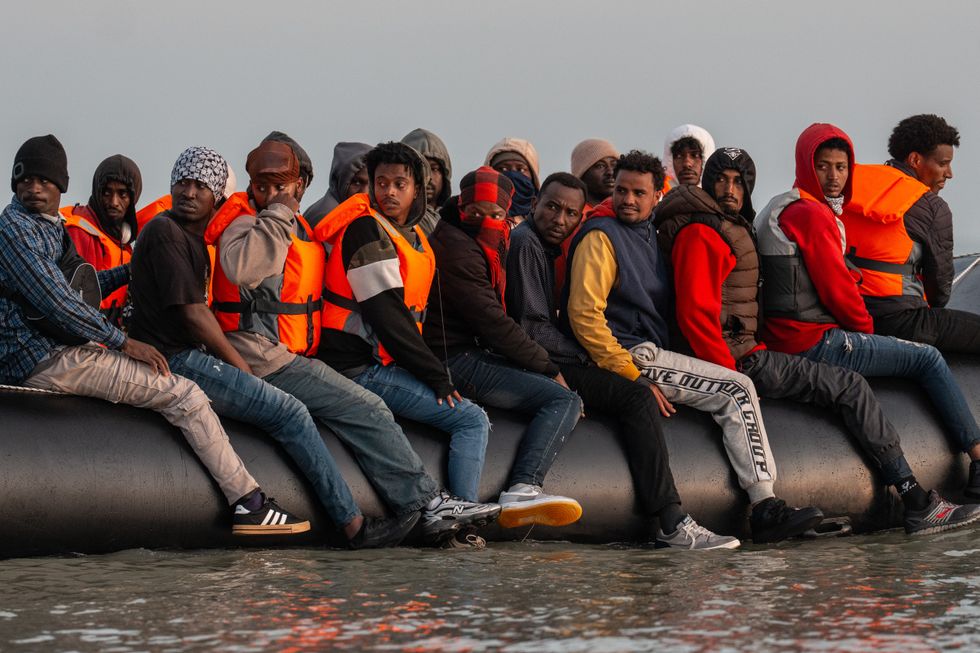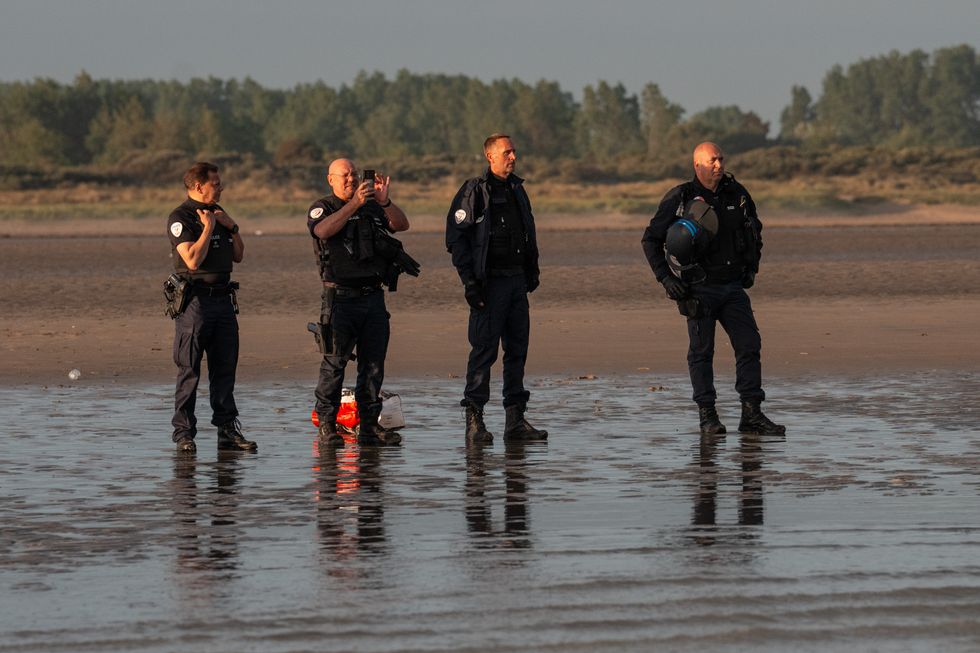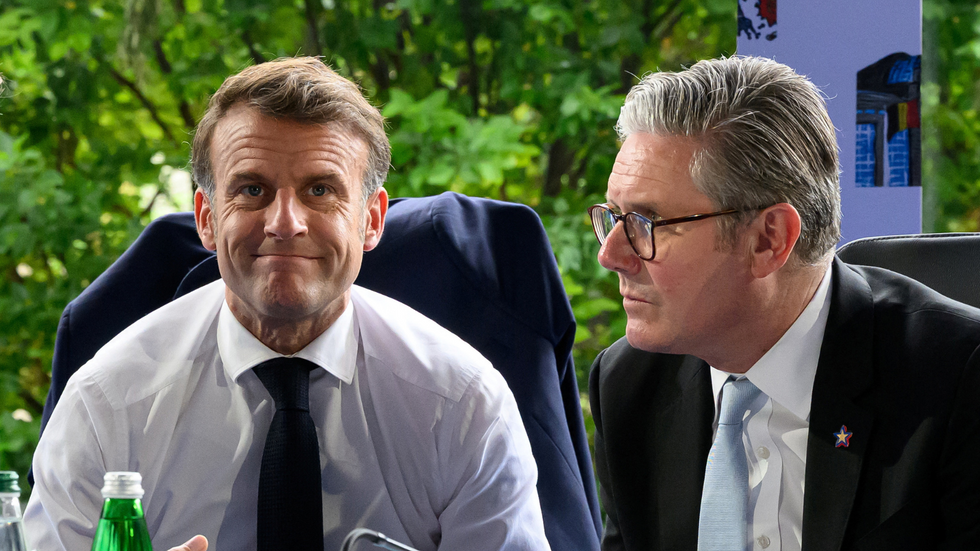


REVEALED: Four ways the French could crack down on migrant crossings as record numbers cross Channel

France could activate four novel methods to stem the flow of migrants across the English Channel, a former head of the UK's Border Force has said.
The authority's ex-chief Tony Smith has called on the French to spring into action and stop the boats in a sharp put-down to the country's MPs, some of whom have claimed it is "unfair" to lay the blame for the crisis at France's door.
His words come following the arrival of a staggering 14,812 migrants in just five months - a jump of 42 per cent compared to the same time-frame in 2024.
And with summer, the busiest season for Channel crossings underway, Britain's near neighbours could cut the crossings four ways, Smith says.

Tony Smith's words come following the arrival of a staggering 14,812 migrants in just five months
GETTY
The ex-Border Force chief's first call would see Britain and France working together on joint patrols in the Channel.
He has long proposed similar plans, which would likely see officers from both countries agree to return would-be migrants back to France - even if they were intercepted in Britain's waters.
So far, France has refused any such call, with critics warning it would undermine French territorial sovereignty.
But Smith himself has made one work in the past. After 9/11, the US and Canada gave each other's officers powers of arrest within a defined boundary on either side of the border.
"It would need a readmission agreement with France," he said. "Ideally, you have an agreement where it doesn't matter where the migrants are picked up... Even if it is within UK waters, you have joint patrols and they are returned to France."

France's border guards could soon be given powers to 'literally' stop the boats
GETTY
Smith's second suggestion could soon be put into place by French authorities.
He has called for France's border guards to "get alongside these boats while the migrants are trying to jump into them and literally push them back".
Migrant dinghies' biggest challenge is "getting over the first waves and out to sea", Smith told The Telegraph - and now, France is taking steps to stop them doing so.
Paris has committed to amending French law specifically so that police can stop boats at sea for the first time.
This will give officers the power to use their own vessels in shallow waters to intercept overloaded boats.

Paris has committed to amending French law specifically so that police can stop boats at sea
REUTERS
The former Border Force chief's third call, like his first, echoes tactics in place across the Atlantic.
Recently, people-smugglers in France have started launching dinghies in inland rivers or waterways before sailing them to beaches to take on migrants.
French authorities have so far attempted to deploy special pontoons to block the boats - which have largely failed.
But on the Rio Grande, the river which separates Mexico from the US, Donald Trump's border guards have set down miles and miles of interlocked buoys.
The buoys - smooth to the touch - are practically impossible to climb over or swim under, and would block dinghies from escaping French rivers.
Smith's fourth and final call is just one agreement away from being green-lit: Intense, high-tech surveillance of migrant boats and people-smugglers.
The technology forms part of the controversial £480,000-per-day deal agreed between France and Rishi Sunak's Government.
But once again, "territorial sovereignty" concerns have prevented it from being rolled out.
Satellite imagery and drones could combine to enable police and border officials to be deployed before people-smugglers launch their dinghies into the sea.
"If you get to them before they get into the water, you can disable the vessels before launch," Smith said. "You puncture them. There won't be anybody on board so you are not going to harm anyone. You could seize the vessel."
Some imagery, he added, is so high-definition that operators can "zoom in and see what people are having in their sandwiches on the deck of a boat".
